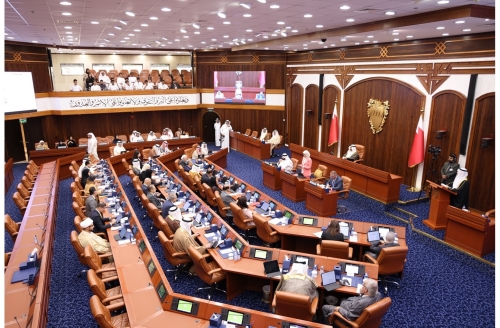The Great Bahraini vs Expatriate Pay Divide: Fact or Fiction?
TDT | Manama
The Daily Tribune – www.newsofbahrain.com
Reported by Mahir Haneef
A storm of debate has swept Bahrain’s parliament this week, ignited by an MP’s claim that nearly 16,500 foreigners pocket a luxurious BD1,000+ monthly salary.
This explosive statement fuelled a proposal to increase fees for hiring foreign workers, aiming to boost employment opportunities for Bahrainis. But is this picture reality or a mirage?
Government data tells a different story, one where the average Bahraini in the private sector walks away with a paycheck three times fatter than their foreign counterpart. The official figures paint a stark contrast: BD815 for Bahrainis versus BD260 for non-Bahrainis.
The data was released by the Social Insurance Organization in its ‘Statistical Report 2023—Quarter 3’. Even at the median point, where half the workers earn more and half less, the gap yawns wide: BD450 for Bahrainis, and BD110 for foreigners.
This pay disparity extends to new hires too. Fresh-faced Bahraini graduates bag an average BD446, while their foreign counterparts start at a humble BD193. Age-wise, Bahrainis enter the workforce younger (23 years) and enjoy longer careers compared to non-Bahrainis, who begin at 29.
The public sector paints a similar picture. Bahraini public sector employees, on average, earn BD945, while data for non-Bahrainis is curiously absent. So, while some foreigners may indeed reach the BD1,000 mark, they represent a tiny fraction of the overall picture.
The reality is a Bahraini-dominated landscape where local workers reap the higher rewards on average, across demographics and experience levels. The stark data raises a crucial dilemma: Should the fee hike be a blanket policy or targeted towards sectors where high-earning foreigners compete with Bahrainis? Simultaneously, investing in robust training and upskilling programmes can equip locals to climb the salary ladder and thrive in a competitive job market.
Whether the answer lies in targeted fee increases, enhanced skills development, or a combination of both, one thing is clear: the path to a more equitable Bahraini job market requires navigating beyond the mirage of generalisations and towards the data-driven oasis of reality.
Related Posts

